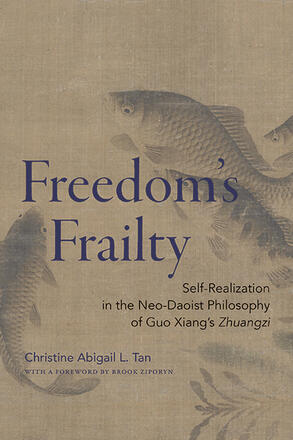
Freedom's Frailty
Self-Realization in the Neo-Daoist Philosophy of Guo Xiang's Zhuangzi
Alternative formats available from:
Draws on Guo Xiang's commentary on the Zhuangzi to construct an account of freedom that is both metaphysical and political.
Description
This book starts with the radical premise that the most coherent way to read the Zhuangzi is through Guo Xiang (d. 312 CE), the classic Daoist text's first and most important commentator, and that the best way to read Guo Xiang is politically. Offering an investigation of the notions of causality, self, freedom, and its political implications, the book provides a comprehensive account of freedom that is both ontological and political, using Guo's notion of self-realization (自得 zide). This is a conception of freedom that introduces a "dependence-based autonomy," in which freedom is something we achieve and realize through our connection to others. The notion that a subject is born with freedom—and that one can return to it by isolating oneself from others—would be a strange idea not just to Guo but to most Chinese philosophers. Rather, freedom is complex and frail, and only the kind of freedom that is collectively attained through radical dependence can be worth having. In sum, the book makes a new contribution to Chinese philosophical scholarship as well as philosophical debates on freedom.
Christine Abigail L. Tan is Lecturer at the National University of Singapore.
Reviews
"The greatest strength of this book is that it tries to bridge the divide between Eastern and Western philosophy by engaging the thought of an understudied early medieval thinker, Guo Xiang, in response to a philosophical problem being discussed in the modern Anglophone world—namely, the question of freedom. The author argues that Guo's conceptions can help to formulate a definition of freedom that goes beyond the binary of 'freedom from'/ 'freedom to,' which is the core of relevant discussions in the Anglophone world, by proposing a 'freedom in,' or what the author calls 'dependence-based autonomy.'" — Friederike Assandri, University of Leipzig